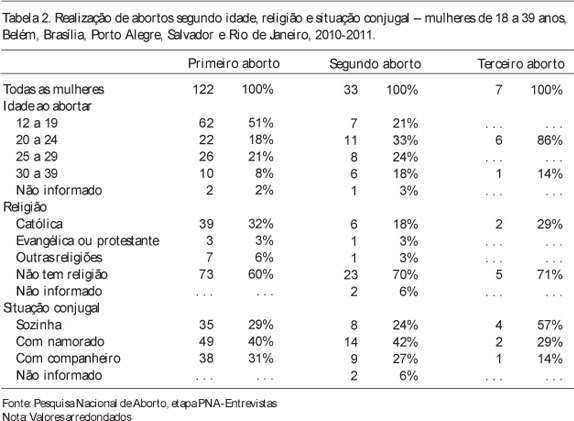This paper presents the results of the structured interview phase of the National Abortion Survey (PNA-interviews), describing the itineraries, methods and social and demographic profile of women who had at least one illegal abortion. Structured interviews were conducted during the years 2010 and 2011 in five state capitals (Belem, Brasilia, Porto Alegre, Rio de Janeiro and Salvador) with 122 women aged between 18 and 39 who had abortions. It is a non-probabilistic sample controlled by six parameters in accordance with level of education and age to reflect the social and demographic structure found in the PNA ballot-box questionnaire phase. The majority of women interviewed had had only one abortion, but 1 in every 4 had two abortions and 1 in every 17 had a third one. The majority of abortions are among women under 19 years of age who already had children and a higher incidence is found among black women. The most common test for pregnancy is beta-HCG blood test, the pharmacy urine test and ultrassound. The prevailing method for induction is a combination of teas and misoprostol (called Cytotec in Brazil), followed by hospital assistance after induction. Women are usually helped by a relative or their partners and several women reported helping other women to have abortions.
Induced abortion; Misoprostol; Cytotec; Adolescent pregnancy; Reproductive health




